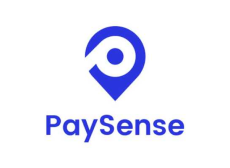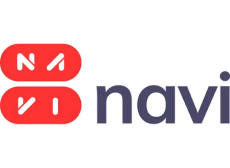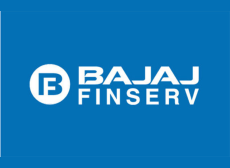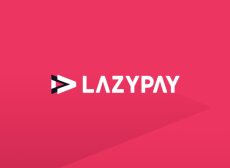Repayment plan
There are different ways to repay a loan. One option is to stretch out your payments over the course of the loan, resulting in a lower EMI. Aside from making your life easier, this approach may actually boost your credit score.
A personal loan is a great way to finance your dreams and indulgences, but it is essential to know how to use your money wisely. You can do this by focusing on your financial priorities, prioritising your debts and sticking to a budget. If you are not able to stick to a budget, hiring a debt management company can help. These companies can set up a debt plan, make the necessary adjustments and create a debt free future.
The first and most obvious option is to find a lender with a decent interest rate. Most lenders offer the loan in fixed rates and can also allow you to prepay. Alternatively, you can opt for the ECS (electronic clearing system) facility, which will deduct the loan from your account automatically. Some public and private sector banks don’t charge you a penny for prepayment.
Credit score
If you’re planning to get a personal loan, it’s important to have a high credit score. A good credit score can help you secure better loan offers, lower interest rates, and longer loan tenure.
Your credit score is a three-digit number generated by CIBIL (Credit Information Bureau of India). It’s used by lenders to assess the likelihood of your repayment. It also takes into account your previous debts and repayment history.
CIBIL’s minimum score for personal loans is 720. However, the majority of lenders consider a credit score between 750 and 900 as ideal.
Personal loans are unsecured, and lenders may refuse your application if your score is too low. Lenders are wary of sub-prime borrowers, who are more likely to default. In addition to a CIBIL score, your income, employment, and city of residence also play a part in your loan approval.
You can check your credit score for free online. All four major credit bureaus offer credit scores for free once a year. There are other websites that provide them for free.
Your CIBIL score is based on your repayment history, including your credit card payments and EMIs. If you’re in poor financial health, you can improve your CIBIL score by managing your credit cards and loan payments responsibly.
Loans are an effective way to meet emergencies and other goals. But a low CIBIL score can result in your loan being declined, or a higher interest rate.
Foreclosing your personal loan
If you are facing financial trouble and can’t repay your personal loan, you can opt to foreclose it. However, you need to consider whether you should do so. You need to know the different options available and the benefits and pitfalls of each.
The process of foreclosure varies from lender to lender. To understand the process, you need to contact a customer care representative of your bank or financial institution. They will explain to you the steps involved in foreclosing your personal loan.
One of the first steps to take is to calculate your outstanding loan balance. The calculator will help you determine the amount you will have to pay to foreclose your loan. It also gives you an idea of what the cheapest option is.
In addition to calculating the interest rate, you need to consider other factors. These include the amount you can afford to borrow, your financial capacity, and your liquidity needs. Also, you need to consider your credit score and the impact that paying off the loan early will have on your score.
If your debt is causing you to make poor financial decisions, foreclosing your loan might be the best solution. This process is often called prepayment, but you should check your lenders’ terms and conditions before taking any action.
Foreclosing your loan may not be the cheapest option, but it does have a number of benefits. Aside from reducing the burden on your finances, you can improve your credit rating and eliminate the risks associated with loan repayment.
Top-up personal loan
A top up personal loan is a second loan taken out by an individual in addition to their existing personal loan. This is a good option when you need additional funds for meeting financial obligations. Top up personal loans are typically offered at a slightly higher interest rate.
If you are taking out a top up personal loan, you may be thinking about how to repay it. There are a number of ways that you can go about repaying your loan. You can ask for a top up loan from a lender or try to negotiate a lower interest rate.
You might also be wondering whether you can avail tax benefits on your top up loan. Some lenders will offer tax benefits to borrowers who use the loan to purchase a home, renovate or expand their homes. It is important that you understand your situation and make an educated decision.
You should also take into account your present and future needs before deciding on a personal loan. For instance, you might want to get a loan for your children’s education.
On the other hand, you might want to borrow money for medical expenses, business expansion, or vacation. In either case, you will have to ensure that you are using the money for your intended purpose.
As for the top-up personal loan itself, you will have to meet a few requirements before you can get approved. Generally, you will need to prove that you have a fixed income, are a regular payer, and have a clean repayment history.
Government employees
Personal loan for government employees is offered by most of the leading banks. These are collateral-free loans. The application process is fast and easy. They can be approved instantly.
In case of an emergency, a personal loan can be used to meet expenses. It can also be used to pay off debts. Government employee personal loans are designed for those who need to meet unforeseen expenses. Whether it’s purchasing expensive tech or paying off credit card debts, a government employee can easily meet his needs with the help of a loan.
Personal loan for government employees are available at competitive rates. Banks offer flexible repayment tenors of one year to six years. Applicants can get their loan amount in as little as thirty minutes.
A personal loan for government employees can be used to fund weddings, holidays, home renovation, and other urgent expenses. The maximum limit of a personal loan for government employees is up to 40 lakhs. However, the interest rate varies from bank to bank.
A personal loan for government employees can also be used to buy a car, a home, or even to pay off debts. Most banks have special rates for those who are in the army or defence forces.
To qualify for a loan, the applicant must be at least 21 years of age. He or she should also have a good credit score. Typically, the minimum credit score is 700.
Non-Resident Indians
A Non-Resident Indian (NRI) is someone who lives in India but doesn’t have permanent residence in their country of origin. This can be for many reasons. They may be relocating to a new location for better economic opportunities, for educational reasons, or just for a change of scenery.
If you’re an NRI and you’re looking for a loan, there are a number of options available. One option is to look for an unsecured personal loan. These loans are usually used for emergency needs and don’t require any collateral.
The interest rate on these loans is generally higher than other loans. However, the rates will vary depending on your bank. Also, you should consider the repayment schedule.
Some banks offer a maximum amount that you can borrow. Others require you to have a specific income. You might also be required to have a certain history of accounts.
To get a loan, you will need to complete an application form. You can submit it online. Your documents will then be reviewed. Generally, you can expect a faster approval process if you have a good relationship with your bank.
You can also contact the bank directly. Many banks require certain documents to be submitted, including your salary slips.
The interest rate on these loans is also influenced by the currency of your deposit. The interest rate for a dollar will be around two to three percent.
Repaying loan
Repaying your personal loan in time and in full can have a big impact on your credit score. The process may take a bit of time, but it can be well worth the effort. This is because you may end up with a higher score than you started with, and you’ll also have more money in your pocket at the end of the day.
As a result, you’ll be better positioned to borrow money at a more reasonable interest rate. In addition, you’ll be better able to make payments on time and stay within your budget.
Your credit score will fluctuate throughout the process. Fortunately, there are some ways to minimize the negative effects.
The key to maintaining a good score is to keep your debt to income ratio as low as possible. Getting a good personal loan with a decent interest rate can help you get back on track. You can even take out a rewards credit card to improve your score.
A lower credit utilization ratio will improve your overall credit score. Lenders like to see your utilization rate below 30%. And paying off some older loans will reduce your average account age.
Using a credit card and paying off your bill on time are both great ways to improve your score. However, getting a personal loan can be a great way to consolidate your debt and diversify your credit mix.
Determine the amount of your loan
You may not be able to determine the exact amount you will qualify for, but you can figure out the best loan size for your needs and budget. Having a basic idea of how much you can borrow will help you plan your next move and keep more cash in your pocket. In fact, borrowing more than you need could end up costing you more in the long run.
For example, the biggest EMI (equated monthly instalment) you can possibly afford will vary based on your income and credit score. Lenders use a variety of criteria to determine your eligibility. Some of these include your age, years of experience and industry sector. The EMI/NMI ratio is another measure of your financial standing. It is the ratio of your net monthly income spent on current EMIs to your new monthly loan payments. This is the best way to calculate the maximum loan amount you can qualify for.
A personal loan is one of the most important purchases you will ever make. You should shop around for the best deal. However, you should also be sure to shop for a lender that understands your needs. As a result, you will be able to select a provider that can provide you with the most competitive interest rate.
If you need a little more information on the subject, you can always turn to the internet. Using an online calculator to compare and contrast various lenders is one way to make the right choice.
Processing fees
Processing fees for a personal loan in India vary from bank to bank and lender to lender. However, the maximum fee is usually between 2 to 4 percent of the total amount of loan. This is calculated based on a number of factors.
Some lenders waive off processing fees while others charge them in addition to the principal of the loan. If you are considering a personal loan, be aware of these charges before you apply.
The minimum processing fee for a personal loan in India is one-half of 1%. In some cases, it may be higher. You may also be charged for duplicate statement fees, part payment and Goods and Services Tax (GST) if applicable.
Processing fees for a personal loan in India can also include miscellaneous charges. These charges are usually paid by the borrower. They include administrative expenses associated with checking a borrower’s credit history.
Loan processing fees are usually non-refundable. However, some banks suggest that a refund is possible if the loan is not processed. Another way of obtaining a refund is by requesting a written statement from the bank.
Other hidden costs in a personal loan include Goods and Service tax and late payment fees. However, these are not applicable to all loans. Hence, it is important to check the refund policy of the lender before applying for a loan.
Some banks offer a zero-processing-fee personal loan. However, you need to check the terms and conditions of the lender.
Personal loans are a good choice for those who need extra cash. A personal loan can be used for emergencies or as a special purpose. It is a smart way to beat a financial crunch.
Repayment period
Personal loan tenure is an important factor to consider before applying for a loan. Longer loan tenures help reduce your monthly EMIs. They can also help you manage your expenses better. Besides, you get more time to repay your loan.
The length of personal loan repayment period varies from lender to lender. It depends on the type of loans you choose and your income. In general, a shorter tenure will be accompanied with higher EMIs. However, some lenders offer you up to 84 months.
Repayment period can also affect your interest rate. If you opt for longer tenures, you’ll have to pay more in interest, but you’ll also have a lower EMI. This can free up cash for other expenses.
Getting a loan opens up your credit history. When you pay off your outstanding loan amount, you’ll increase your credit score. Having a good credit score can help you qualify for more loans in the future.
Typically, the loan tenure of a personal loan is between 12 and 60 months. Lenders often offer prepayment options. These include cheques, DDs, and net banking services. You can also link your current account to your loan account. Some banks will charge a fee for prepayment, but others will allow you to foreclose the loan six months after the disbursement date.
Depending on your loan term and your credit history, you may be eligible for a lower rate of interest. Various factors contribute to this including your employment status, the type of loan you chose, and your previous repayment history.
If you are unsure about your eligibility for a personal loan, you can contact a loan officer at your bank. They can also direct you to online applications. After you submit your application, the bank will determine your eligibility.
Interest rate
The interest rate of personal loan is determined according to many factors. One major factor is the income of the borrower. Another factor is the repayment capacity of the borrower. Several lenders offer personal loans at concessional interest rates to applicants with an existing credit history. Besides, the borrower’s credit score also plays a vital role in determining the interest rate.
A personal loan balance transfer is another facility offered by lenders. It enables the borrower to transfer the outstanding balance of his loan to a lower rate of interest. In this way, he can save some money and gain other benefits.
There are several banks in India that offer low interest rates to customers of certain groups. For example, public sector banks usually charge lower rates for their employees and pensioners. Furthermore, there are special schemes arranged for women.
Other factors influencing the interest rate are the borrower’s age and employment status. If a person is self-employed, he can expect to get higher rates of interest. Moreover, he can opt for a lower rate if he can present a good collateral.
However, it is always a good idea to check out the interest rate of different lenders before applying for a loan. Most reputable companies will give you a better rate of interest. This is because the lender will have less to lose if the borrower defaults on the repayments.
In addition, the interest rate of a particular loan will depend on the amount of loan and the tenure of the loan. For example, a personal loan of Rs. 5,00,000 with a repayment period of five years will come with an annualized interest of 9%. That’s a lot more than the 6% rate you might have found online.
NRI personal loans
NRI personal loans in India offer you the chance to get a loan for your personal use. The amount you receive can be used for home renovation, travel, education, medical emergencies, and many other reasons. However, the process of getting an NRI loan may vary from bank to bank, so you need to do your homework before deciding on a lender.
There are two types of NRI personal loans available. One type is for salaried professionals. You can qualify for this type of loan if you are employed in the same company for at least one year.
Another type is for self-employed professionals. These individuals must show that they have maintained their business for at least three years. They may also be required to submit proof of continuity in their business. Some banks waive this requirement if the applicant owns real estate in India.
Before applying for an NRI personal loan, it is best to compare the charges and terms and conditions of several lenders. A good bank will be able to guide you through the process. If you have a good relationship with your bank, you will likely have a faster loan processing time.
Personal loans for NRIs can be repaid in instalments. Depending on your capacity to repay, the repayment tenure can range from one year to five years.
It is also important to consider your credit history. This helps you to get a better interest rate. Getting a personal loan with a bad credit score can mean paying more money for your loan.
NRI personal loans in India are offered in different currencies. Most lenders allow you to choose the currency you want to be credited in. Examples of these currencies are US dollars, Euros, SGD, AED, and HKD.
Contact a financial advisor
A personal loan is a good way to address your immediate financial needs. Many banks and NBFCs in India offer personal loans ranging from 2 lakhs to 20 lakhs. They are also a good way to sock away some cash for your retirement savings in the future. Luckily, there are many online services to choose from. But be sure to do your homework and compare loans from different lenders. After all, you wouldn’t want to be left with a high interest rate that is more expensive than your savings.
Several reputable companies are happy to provide you with all the information you’ll need to make an informed decision. From the best interest rates to the most suitable mortgage options, we can help you find the right financial solution for your needs.












